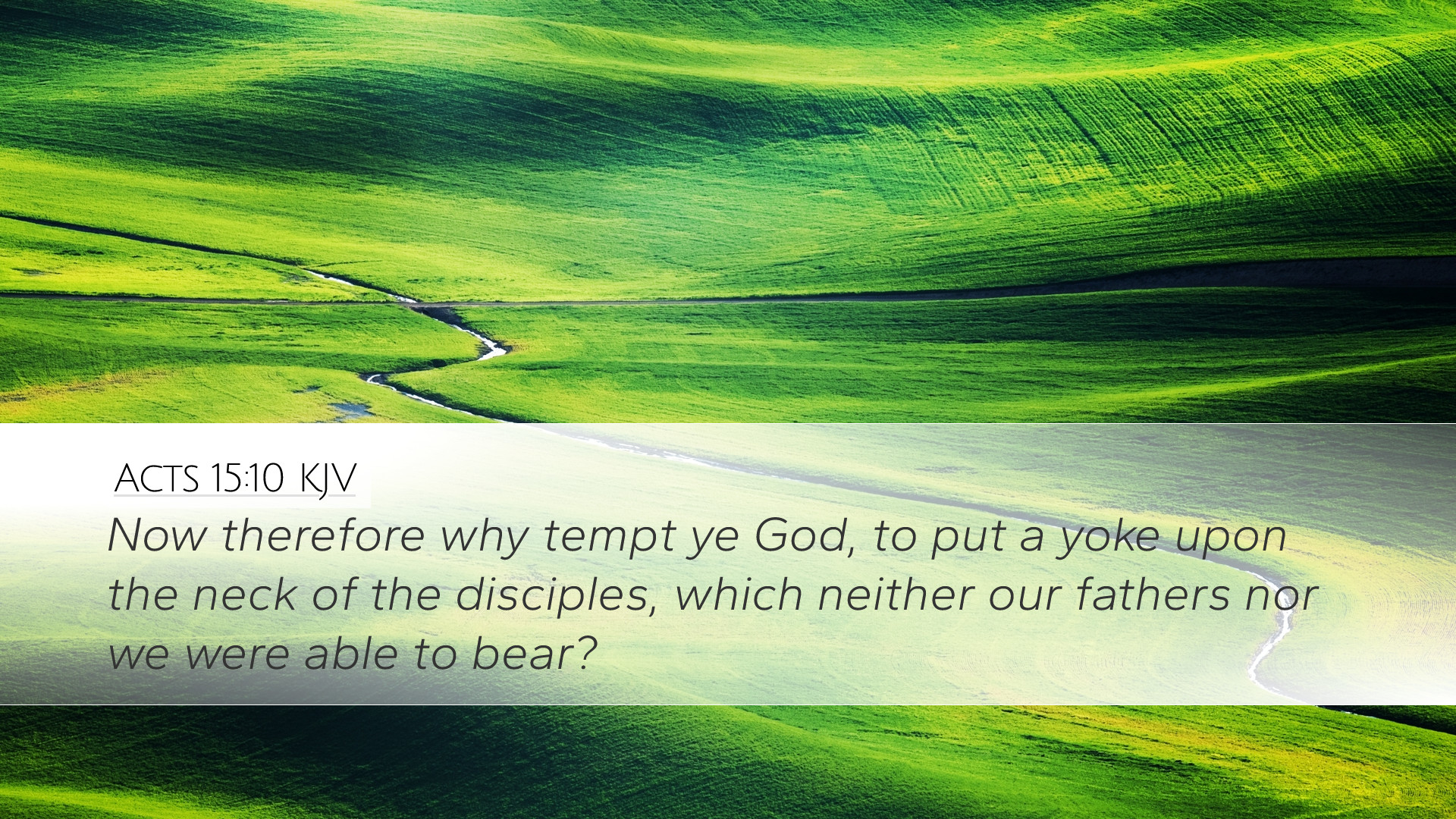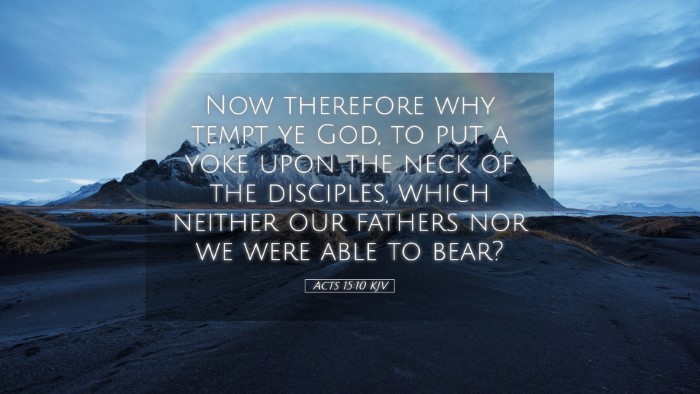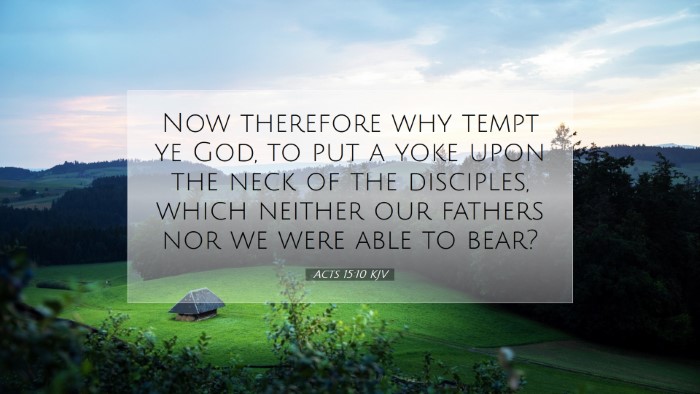Commentary on Acts 15:10
Verse Reference: Acts 15:10 - "Now therefore why tempt ye God, to put a yoke upon the neck of the disciples, which neither our fathers nor we were able to bear?"
Introduction
This verse arises during a significant moment in the early church, specifically at the Council of Jerusalem, where the apostles and elders convene to address the issue of whether Gentile believers should be required to follow the Mosaic Law. This commentary combines insights from notable public domain scholars to provide depth and understanding for pastors, students, and theologians.
Contextual Background
The Council of Jerusalem, as narrated in Acts 15, addresses a critical theological dispute regarding salvation through faith and the role of the law. The early church faced pressure from certain factions claiming that adherence to Jewish law was necessary for salvation. The atmosphere was charged, and decision-making required careful theological reflection.
Historical Perspectives
-
Matthew Henry: Henry highlights the predicament faced by the apostles. He emphasizes that the imposition of Jewish customs upon Gentile believers would not only be burdensome but also unnecessary, given the grace already extended through Christ. His commentary stresses that the Spirit’s work among the Gentiles affirmed their inclusion without the need for legal observance.
-
Albert Barnes: Barnes elaborates on the term "yoke," explaining it as an appropriate metaphor for the burdensome nature of the law. He points out that the law was a burden to the Jews themselves, and thus enforcing it on Gentile converts would be hypocritical and contrary to the spirit of the gospel.
-
Adam Clarke: Clarke's analysis expands on the theological implications of the "yoke." He interprets this yoke as representing legalism, arguing that it contradicts the freedom brought by Christ. Clarke places emphasis on the principle that salvation is by grace and not by the works of the law, underscoring the sufficiency of faith in Christ alone.
Theological Exegesis
This verse invites profound theological reflection on the nature of salvation and the role of the law in the lives of believers. The apostolic declaration serves as both a warning and an affirmation of faith.
The Nature of the "Yoke"
-
Burdensome Requirements: The “yoke” symbolizes the heavy demands of the law that neither the Jews nor their ancestors could uphold. The weight of legalism becomes a metaphor for spiritual oppression rather than a means of grace.
-
Divine Temptation: "Why tempt ye God?" signifies an attempt to impose incorrect standards on God’s grace. It underscores the danger of constraining God's work within human limitations. By requiring adherence to the law, the church would question God's means of salvation.
Practical Applications
This verse presents pertinent applications for contemporary church life, especially regarding legalism vs. grace:
- Grace vs. Legalism: The early church's experience with legalism warns modern believers to avoid allowing tradition to override the gospel message of grace.
- A Call for Unity: Emphasizing inclusivity among believers of diverse backgrounds fosters unity and discourages barriers that the church might erect.
- Encouragement for Leadership: Church leaders must be vigilant against any attempts to impose unnecessary burdens on believers, focusing instead on the empowering nature of faith in Christ.
- Preserving the Essence of the Gospel: The necessity of consistently returning to the core message of grace reminds the church to prioritize what truly matters: faith in Jesus Christ as the sole means of salvation.
Conclusion
Acts 15:10 stands as a critical reminder of the early church's struggles with grace and legalism. Through the insights of respected commentators, we are challenged to grasp the implications of imposing additional burdens on believers. As we reflect on this passage, may we allow its messages to shape our practice and understanding of God's grace, ensuring that we do not place a yoke upon others that Christ has already fulfilled.


